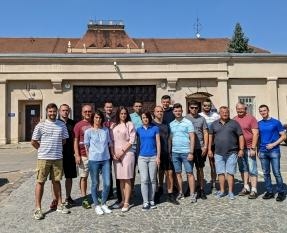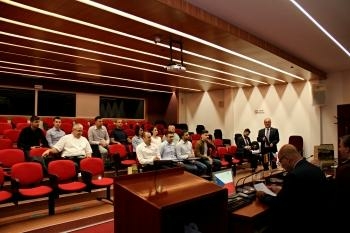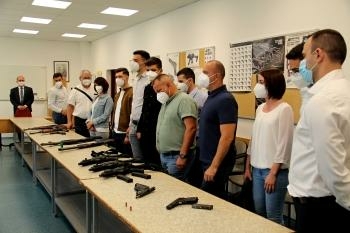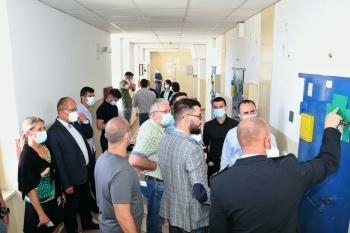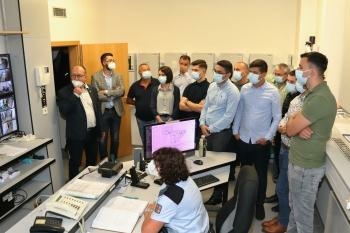Directorate General
Romanian study visit to the Czech Prison Service
PRAGUE, 20 August (VS ČR) - In the second week of August, a 12-member delegation of representatives of the Romanian Prison Service visited the Czech Prison Service. The Romanian colleagues visited the Academy and Prison in Stráž pod Ralskem, the Remand Prison in Liberec and ended their visit with a tour of the Brno Remand Prison and Forensic Detention Facility.
The cooperation with Romania is not as frequent as with our close neighbours Slovakia or Poland, yet it has a tradition within the Czech prison system - an agreement on cooperation was signed by top representatives of both agencies more than 10 years ago. Among the most active in mutual contacts are Oracov Prison with its counterpart in Tulcea (Romania) and the Czech Prison Service Academy with its partner institution in Tirgu-Ocna (Romania). In 2019, the Odolov Prison also established cooperation with the prison in Timisoara during the last visit of the Czech staff to Romania so far. Further exchanges were, unfortunately, thwarted by the Covid-19 pandemic.
This August, we symbolically resumed the mutual contacts. Deputy Director-General of the Romanian Prison Service accompanied by 11 colleagues, the vast majority of them from Timisoara Prison, expressed his interest in learning about the Czech prison system.
At the beginning, the Romanian delegation visited the Prison Service Academy and saw all the equipment and facilities it offers to students, including the newly renovated building for practical training and the renovated student dormitory. The next three tours took place in individual prisons, each of them offering something different to the inquisitive Romanian colleagues. In Stráž pod Ralskem, they were very interested in the new shooting range, the demonstration of the work of dog handlers or the educational centre with 3D printing. In Liberec, the delegation got to know the system of pre-trial detention in the Czech Republic, the work of the Judicial Guard and even witnessed the seizure of an illegal object in a parcel delivered to the prison. Brno concluded the visit with a tour of the prison hospital and, in particular, the forensic detention.
As the members of the Romanian delegation represented a cross-section of the activities of any prison service, they were - in fact - actively asking questions over the whole visit. Whether it was the staffing of health centres and the dispensing of medicines to prisoners, the practical use of coercive measures, the drawing up of official records, the reception of detainees into pre-trial detention, the escort system, etc. The aim was to get to know another prison system and to be inspired in improving one's own. Hopefully, this aim was accomplished.

